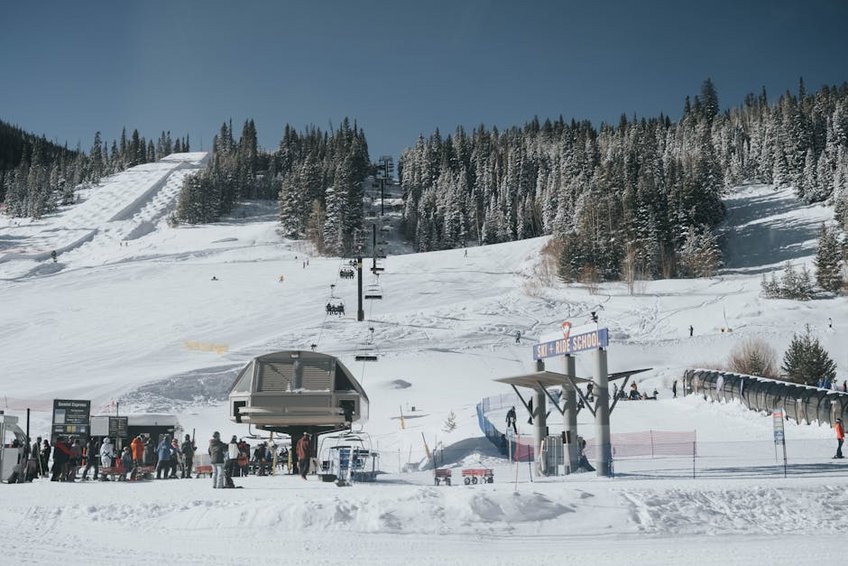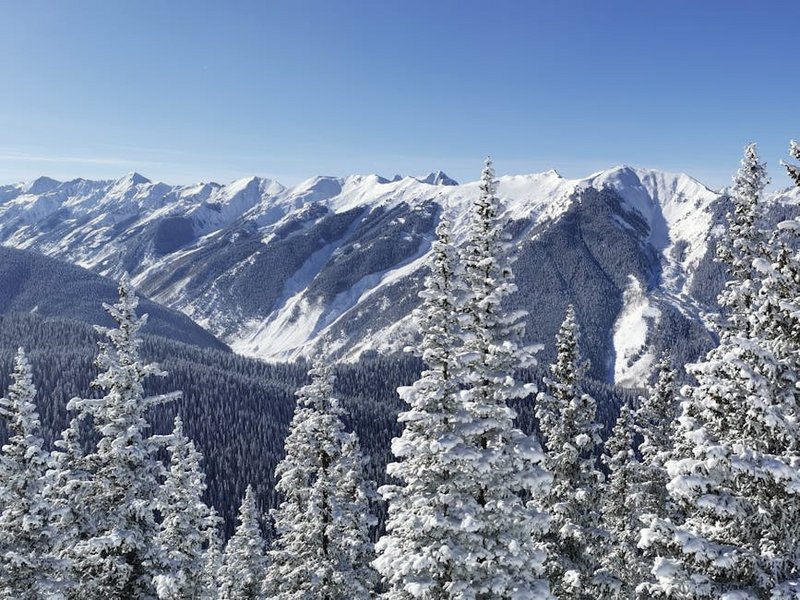Colorado Aspen Ski Season
Imagine carving through pristine powder under bright blue skies, surrounded by the majestic Rocky Mountains—this is what awaits you during the Colorado Aspen ski season. Aspen isn’t just a destination; it’s a legendary winter experience that draws skiers and snowboarders from around the globe, offering world-class slopes, luxurious amenities, and a vibrant apres-ski scene. From the challenging runs on Aspen Mountain to the family-friendly terrain at Buttermilk, this ski season promises unforgettable adventures for all skill levels. You’ll discover why Aspen has earned its reputation as a premier winter playground, blending thrilling outdoor activities with sophisticated mountain town charm. Whether you’re a seasoned expert seeking black diamond challenges or a beginner taking your first lessons, the Colorado Aspen ski season delivers perfect snow conditions, stunning scenery, and memories that will last a lifetime. Planning your trip during peak season ensures optimal skiing conditions and access to all the seasonal festivities that make this Colorado gem so special.
Colorado Aspen Ski Season Essential Information
Understanding the fundamentals of Aspen’s winter offerings will help you make the most of your ski vacation in this iconic Colorado destination. Aspen comprises four distinct mountains—Aspen Mountain, Aspen Highlands, Buttermilk, and Snowmass—each with unique characteristics and appeal. The ski season typically runs from late November through mid-April, with the best snow conditions occurring between December and March. You’ll find terrain suitable for every ability level, from gentle beginner slopes to extreme expert challenges, all accessible with the Aspen Snowmass multi-mountain pass. Beyond skiing, Aspen town itself offers high-end shopping, gourmet dining, and cultural events that complement your mountain experiences. The area’s rich mining history adds depth to your visit, with preserved Victorian architecture and historical sites scattered throughout the valley.
What You Need to Know – Mountain Basics
- Aspen Mountain (Ajax) rises directly above downtown Aspen, featuring primarily intermediate and expert terrain with no beginner runs, making it perfect for confident skiers seeking challenging groomers and moguls.
- Aspen Highlands offers some of Colorado’s most demanding in-bounds terrain, including the famous Highland Bowl, which requires a hike but rewards with incredible views and untouched powder stashes.
- Buttermilk specializes in beginner and intermediate skiing, hosting the Winter X Games and providing excellent learning facilities with gentle slopes and professional instruction programs.
- Snowmass stands as the largest of the four mountains, boasting diverse terrain across 3,000+ acres, extensive family-friendly facilities, and the most vertical drop in the United States at 4,406 feet.
- Budget options include staying in nearby towns like Basalt or Carbondale (30-minute drive), purchasing multi-day lift tickets in advance online for 15-20% savings, and utilizing free mountain shuttle services to reduce transportation expenses—expect daily costs around $150-250 per person including lodging, lifts, and meals.
- Mid-range choices feature standard hotel accommodations in Aspen proper, dining at mid-priced restaurants, and adding ski lessons or equipment rentals—plan for approximately $300-500 daily per person covering comfortable lodging, lift access, meals, and some activities.
- Luxury experiences encompass premium slope-side resorts, fine dining at Aspen’s renowned restaurants, private guides, and spa treatments—budget $600-1000+ per person daily for high-end accommodations, gourmet meals, premium ski services, and exclusive apres-ski entertainment.
- Official Aspen Snowmass Tourism Information
- Colorado.com Aspen Ski Guide
Key Details – Historical Context and Unique Features
Aspen’s transformation from a silver mining boomtown to a world-renowned ski destination began in the 1940s, creating a fascinating blend of Old West history and modern luxury. The town sits at 7,908 feet elevation, requiring acclimatization for visitors arriving from lower altitudes to prevent altitude sickness. You’ll appreciate the free RFTA bus system connecting all four mountains and towns, making transportation between ski areas convenient and eco-friendly. Environmental sustainability remains a priority here, with resorts implementing snowmaking efficiency, renewable energy use, and conservation initiatives to preserve the natural beauty that defines the Colorado Aspen ski season. Cultural institutions like the Aspen Art Museum and Wheeler Opera House provide indoor alternatives on stormy days or when you need a break from mountain activities.
Colorado Aspen Ski Season Planning Your Trip
Strategic planning ensures you experience the best of Aspen’s winter magic while avoiding common pitfalls that can disrupt your ski vacation. Begin by deciding your travel dates based on snow conditions, crowd levels, and personal preferences—early season offers fewer visitors but potentially limited terrain, while peak season guarantees maximum open runs but larger crowds. Booking accommodations and lift tickets several months in advance secures better rates and availability, especially during holiday periods when demand surges. Consider your group’s skiing abilities when choosing which mountains to prioritize, as each resort caters to different skill levels and interests. Budgeting realistically for Aspen’s premium pricing helps prevent financial stress, with options available across various price points if you research thoroughly. Remember to account for travel insurance covering winter sports, as mountain weather can be unpredictable and may affect your plans.
Best Time to Visit Aspen
For ideal skiing conditions during the Colorado Aspen ski season, target late December through February when snow coverage peaks and all terrain typically opens. January offers excellent powder days with shorter lift lines after the holiday rush subsides, while February brings consistent cold temperatures preserving snow quality. March provides longer daylight hours and warmer weather for comfortable skiing, though spring conditions may develop at lower elevations. Early season (November-December) risks limited terrain openings but rewards with lower prices and festive atmosphere as resorts prepare for holidays. Late season (April) often features discounted rates and sunny spring skiing, though higher elevations maintain good coverage while lower runs may become slushy. Holiday periods like Christmas and Presidents’ Week deliver maximum excitement but require advanced bookings and patience with crowds.
Budget Planning and Costs
Essential Preparation Checklist
Preparing properly for high-altitude skiing ensures your safety and enjoyment throughout the Colorado Aspen ski season. Begin conditioning several weeks before your trip with cardiovascular exercise and strength training focused on legs and core muscles used in skiing. Pack appropriate layers including moisture-wicking base layers, insulating mid-layers, and waterproof outer shells to handle changing mountain conditions that can shift from sunny to stormy within hours. Essential gear includes quality ski socks, goggles with multiple lenses for varying light conditions, helmets for safety, and high-SPF sunscreen since UV intensity increases at altitude. Arrange equipment rentals in advance through reputable shops offering performance demos or standard packages tailored to your ability level. Consult your physician about altitude sickness prevention if you have underlying health conditions, and stay hydrated upon arrival to accelerate acclimatization to Aspen’s 8,000-foot elevation.

Colorado Aspen Ski Season Top Attractions and Activities
Beyond the incredible skiing that defines the Colorado Aspen ski season, you’ll discover numerous attractions and activities that enhance your mountain vacation. The four distinct ski mountains provide endless variety, but the region also offers snowshoeing through pristine forests, snowmobiling across high-alpine meadows, and ice skating in picturesque settings. Cultural enthusiasts will appreciate Aspen’s world-class arts scene, with the Aspen Art Museum showcasing contemporary works and the Wheeler Opera House hosting performances ranging from concerts to comedy shows. Dining represents another highlight, with over 100 restaurants serving everything from casual apres-ski bites to Michelin-starred culinary experiences. For relaxation, numerous spas offer therapeutic treatments using local elements like sage and quartz, perfect for soothing muscles after active days on the slopes. Shopping along the pedestrian-friendly streets reveals unique boutiques, art galleries, and outdoor gear stores that reflect Aspen’s sophisticated mountain culture.
Must-See Highlights
No visit during the Colorado Aspen ski season is complete without experiencing these iconic attractions that define the Aspen identity. The Silver Queen Gondola on Aspen Mountain provides breathtaking panoramic views during both day and night operations, with dining options at the summit. Aspen Highlands’ Highland Bowl demands attention for expert skiers willing to hike 45 minutes to access some of Colorado’s most challenging and rewarding in-bounds terrain. Buttermilk’s X Games venue allows you to ski the same features used by professional athletes during this legendary competition held each January. Snowmass Village offers the most comprehensive family experience with its extensive beginner terrain, ski school programs, and base village activities like tubing hills and ice rinks. Downtown Aspen’s historic core features beautifully preserved Victorian architecture housing luxury shops, galleries, and restaurants that create a sophisticated apres-ski atmosphere unmatched in other ski towns.
Hidden Gems and Local Favorites
Venture beyond the obvious to discover these lesser-known treasures that locals cherish during the Colorado Aspen ski season. The Ashcroft Ghost Town, located just outside Aspen, provides a fascinating historical excursion with preserved buildings from the 1880s silver mining era, accessible via snowshoes or cross-country skis. For unique dining, the Pine Creek Cookhouse offers a memorable experience requiring a scenic snowcat ride or ski/snowshoe approach to a remote mountain restaurant serving gourmet cuisine. Maroon Bells Snowmass Wilderness area presents incredible backcountry opportunities for experienced skiers with proper avalanche training and equipment, featuring some of Colorado’s most photographed peaks. The John Denver Sanctuary in downtown Aspen provides a peaceful riverside retreat with stone sculptures and lyrics engraved in rocks, honoring the musician who celebrated Colorado’s beauty. Local secret ski runs include Ruthie’s on Aspen Mountain for consistent groomed cruising and the Dumps on Snowmass for protected tree skiing during stormy conditions.
Seasonal Events and Festivals
The Colorado Aspen ski season comes alive with special events that add cultural dimension to your winter vacation beyond skiing alone. January’s Winter X Games at Buttermilk transform the mountain into a global action sports spectacle with competitions, concerts, and athlete interactions open to spectators. Aspen Snowmass FIS World Cup events bring elite alpine ski racing to the slopes each winter, allowing you to watch world-class competitors tackle challenging courses. The Wintersköl celebration in January honors Aspen’s skiing heritage with four days of events including torchlight descents, fireworks, and community gatherings that showcase local traditions. Food and wine enthusiasts appreciate the various culinary festivals featuring renowned chefs, wine tastings, and cooking demonstrations at venues across town. Holiday periods feature special programming like Christmas Eve torchlight parades, New Year’s Eve fireworks, and Valentine’s Day romantic packages that create memorable moments beyond your time on the mountains.
Colorado Aspen Ski Season Practical Travel Information
Navigating the logistics of your Aspen ski trip requires understanding transportation options, accommodation choices, and practical considerations specific to mountain travel. Most visitors fly into Aspen/Pitkin County Airport (ASE) located just minutes from town, though Denver International Airport (DEN) offers more flight options with a scenic 4-hour drive through the Rockies. Once in Aspen, the free RFTA bus system efficiently connects all ski areas, towns, and parking areas, reducing the need for rental cars during your stay. Accommodation ranges from luxury slope-side hotels to more affordable condominiums and vacation rentals, with location significantly impacting your daily routine and convenience. Advance reservations for popular restaurants, ski lessons, and equipment rentals prevent disappointment during busy periods when services book weeks ahead. Understanding mountain safety protocols, including avalanche awareness for backcountry exploration and proper trail selection for your ability level, ensures a secure and enjoyable experience throughout your Colorado Aspen ski season adventure.
| Accommodation Category | Features and Location | Price Range (USD/Night) |
|---|---|---|
| Luxury Slope-side | Direct ski access, premium amenities, concierge services, spa facilities | $600-1500+ |
| Mid-range Hotels | Walkable to lifts, included breakfast, fitness centers, shuttle access | $300-600 |
| Condominiums/Vacation Rentals | Kitchen facilities, multiple bedrooms, resort amenities, varying locations | $200-500 |
| Budget Options | Shared facilities, basic accommodations, require transportation to slopes | $100-250 |


